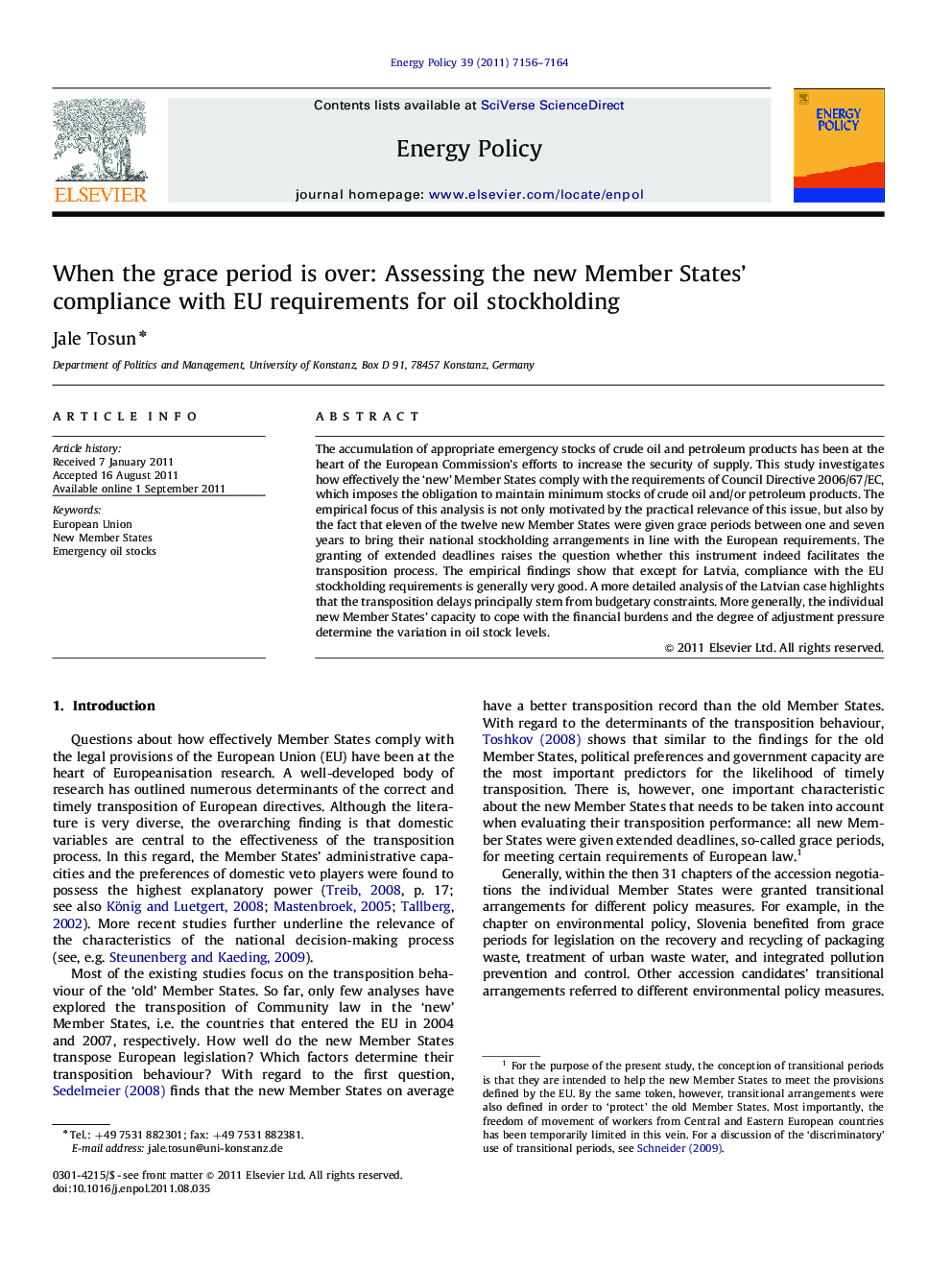| Article ID | Journal | Published Year | Pages | File Type |
|---|---|---|---|---|
| 993388 | Energy Policy | 2011 | 9 Pages |
The accumulation of appropriate emergency stocks of crude oil and petroleum products has been at the heart of the European Commission's efforts to increase the security of supply. This study investigates how effectively the ‘new’ Member States comply with the requirements of Council Directive 2006/67/EC, which imposes the obligation to maintain minimum stocks of crude oil and/or petroleum products. The empirical focus of this analysis is not only motivated by the practical relevance of this issue, but also by the fact that eleven of the twelve new Member States were given grace periods between one and seven years to bring their national stockholding arrangements in line with the European requirements. The granting of extended deadlines raises the question whether this instrument indeed facilitates the transposition process. The empirical findings show that except for Latvia, compliance with the EU stockholding requirements is generally very good. A more detailed analysis of the Latvian case highlights that the transposition delays principally stem from budgetary constraints. More generally, the individual new Member States' capacity to cope with the financial burdens and the degree of adjustment pressure determine the variation in oil stock levels.
► Compliance with Council Directive 2006/67/EC is generally very good in the new Member States. ► Solely Latvia faces difficulties in developing adequate oil stock levels. ► Latvia's insufficient compliance can be attributed to severe budgetary constraints. ► Financial capacity and adjustment pressure determine cross-country variation in stock levels.
